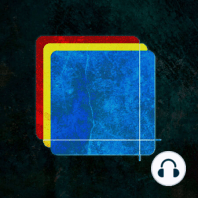9 min listen

Nihilism vs. Existentialism vs. Absurdism — Explained and Compared
Nihilism vs. Existentialism vs. Absurdism — Explained and Compared
ratings:
Length:
14 minutes
Released:
May 30, 2021
Format:
Podcast episode
Description
What is the difference between Nihilism vs. Existentialism vs. Absurdism? The common ground they share is that they are all responses to philosophy’s timeless clichéd question “what is the meaning of life?” Nihilism came into full bloom in the 19th century as the full implications of modernism came to fruition. Existentialism and Absurdism are two ways of responding to the crisis of Nihilism. So what is Nihilism? It’s the belief that there is no objective meaning, no purpose outside the illusions humanity has created for itself. As science developed and the religious narratives were found to be ineffective and hollow, the religious account of reality was consigned to the trash heap of history but with it went the grounding of our morality and meaning. This is what Nietzsche’s madman is decrying in The Gay Science when he proclaims that God is Dead. Among the ways of facing this crisis, Existentialism vs Absurdism are two promising alternatives. Existentialism says there is no objective/inherent value but there is a potential for a created value. For Jean-Paul Sartre Existentialism is the realisation that existence precedes essence which means that humans have a radical freedom to create our own meaning through how we live our lives, through the acts of our will. The Absurd was first talked about by Kierkegaard but was fully developed by Albert Camus into the philosophy of Absurdism in his book The Myth of Sisyphus. The Absurd is the collision between the inherent human hunger for meaning and the impossibility of satisfying this drive in a meaningless world. Camus says we have three options in facing the Absurd: commit suicide, take a leap of faith and believe in some meaning (like Christianity, Buddhism, Marxism, existentialism) something Camus calls philosophical suicide. The third option is Absurdism. Absurdism is the rebellion against the Absurd. It is to refuse to give in and create a meaning. For Camus Absurdism means holding the space of the absurd, staring into its face and rebelling against it and out of this rebellion flows our freedom and passion. _________________⭐ Support the channel (thank you!)▶ Patreon: patreon.com/thelivingphilosophy▶ Ko-fi: ko-fi.com/thelivingphilosophy _________________? Further Reading:Primary:Camus, A., 2013. The Myth of Sisyphus. Penguin UK.Camus, A., 2013. The Outsider. Penguin UK.Sartre, J., 1960 Existentialism is a Humanism Secondary:Aronson, R,. 2017. “Albert Camus”, The Stanford Encyclopedia of Philosophy , Edward N. Zalta (ed.), URL = (https://plato.stanford.edu/archives/sum2017/entries/camus/).Crowell, S,. 2020. “Existentialism”, The Stanford Encyclopedia of Philosophy, Edward N. Zalta (ed.), URL = (https://plato.stanford.edu/archives/sum2020/entries/existentialism/).Foley, J., 2014. Albert Camus: From the absurd to revolt. Routledge.Hassall, D,. 2017. “Finding Meaning in the Lack Thereof: An Analysis of Nietzsche's and Sartre's Responses to the Problem of Existential Nihilism” Honors Theses. 493. URL = (https://encompass.eku.edu/cgi/viewcontent.cgi?article=1476&context=honors_theses) _________________⌛ Timestamps:0:00 Introduction0:48 Nihilism: Meaning and Origins5:15 Existentialism: Definition and its Solution 8:25 Absurdism9:24 Camus’s Three Responses to the Absurd11:45 Why Sisyphus is Camus’s Ideal13:31 Summary and Conclusion
Released:
May 30, 2021
Format:
Podcast episode
Titles in the series (71)
Ekstasis vs. Catharsis by The Living Philosophy